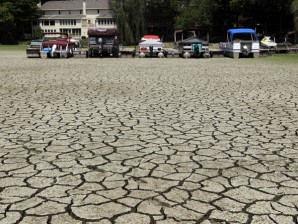El Niño damage to crops: P503M
MANILA, Philippines—Crops valued at a total of P823.29 million have so far been lost to the early effects of a looming El Niño phenomenon, according to the Department of Agriculture (DA).
Based on a preliminary assessment by the DA’s field units, corn farms were most affected by the dry spell, with P583.6 million worth of losses, involving 28,105 hectares with foregone harvest equivalent to 45,729 metric tons of corn.
The dry spell has also taken its toll on rice farms and vegetable farms at P221.28 million and P18.41 million, respectively.
Some 12,200 tons of palay from 4,618 hectares of farms have been lost, as well as 1,190 tons of vegetables from 242 hectares of land.
According to the DA, the most affected region was Cagayan Valley, which accounted for losses worth P426.5 million.
Article continues after this advertisementThe Cordilleras reported P216.95 million, Mimaropa, P168.85 million, and Bicol, P10.96 million.
Article continues after this advertisementAgriculture officials said the DA is providing affected farmers with seeds and other production inputs as well as promoting water-saving measures among rice farmers and pushing for the adoption of modern farming and fishery technologies to mitigate the effects of the anticipated long dry spell.
“The DA will need an initial budget of P1.61 billion (for all these efforts),” Roy Abaya, officer in charge of the DA’s field operations service, said in a briefing.
Abaya said that of the total amount, P764.3 million is already available while the remainder is still being requested from the Department of Budget and Management.
Nearly half of the total, or P729.9 million, is intended for stocking and distribution of inputs, P340 million for the construction of small-scale irrigation facilities and P199.9 million for crop insurance.
A total of P159.8 million is earmarked for the repair and rehabilitation of irrigation systems and P41.8 million is meant for cloud-seeding operations.
“We are calling on rice farmers to use water-saving technologies such as controlled irrigation. We also urge them to implement crop-shifting and closely monitor the incidence of pests and diseases,” Agriculture Secretary Proceso J. Alcala said.
He said government interventions include introducing farmers to drought-tolerant rice varieties such as the “super green rice” and the plating of alternative crops like sorghum, cassava and sweet potato.
“Aside from these, the (DA) has installed efficient and innovative agri-fishery technologies such as the construction of dike peripheral, deepening of fishponds to allow tidal intrusion and the use of aqua species that are tolerant to saline water,” he said.
